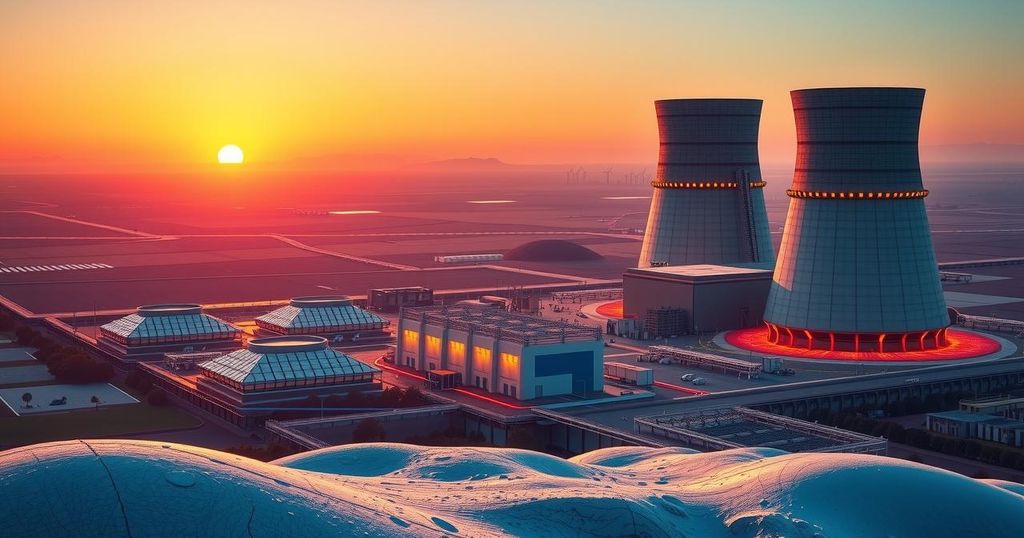Ghana has selected the United States and China to develop its first nuclear power plants, involving Small Modular Reactors and a Large Reactor. The initiative aims to enhance energy security while reducing reliance on fossil fuels. The government plans to integrate one gigawatt of nuclear energy by 2034 to support industrial growth and job creation.
Ghana has made the significant decision to select the United States and China as vendors for its inaugural nuclear power plants, although formal contracts are yet to be finalized. NuScale Power, based in the U.S., in collaboration with Japanese firms, is set to develop Small Modular Reactors (SMRs). Meanwhile, the China National Nuclear Corporation will be responsible for constructing a Large Reactor (LR).
Dr. Stephen Yamoah, Executive Director of Nuclear Power Ghana, provided details on the capacity of these reactors during a media engagement in Accra. The LR is projected to have an output of 1,200 megawatts, while the SMRs will consist of 12 modules, each generating 77 megawatts, culminating in a total of 924 megawatts.
Dr. Yamoah stated that the LR project would adopt a Build, Operate, and Transfer (BOT) financial model with local equity participation, in contrast to the financing of the SMRs through Public-Private Partnerships (PPP). To ascertain the suitable location for the plants, experts are working on gathering environmental and oceanic data following the signing of a framework agreement with the selected vendors.
Mr. Archibold Buah-Kwofi, Acting Director of the Nuclear Power Institute, emphasized the critical necessity for stable and affordable electricity to promote national development. He pointed out that Ghana’s energy portfolio relies predominantly on fossil fuels and hydropower, with renewable energy contributing merely one percent. “We need to fast-track the adoption of nuclear power to secure our energy future,” he stated, stressing the need for strong regulatory frameworks and skilled personnel.
The integration of nuclear power is anticipated to lessen reliance on fossil fuels, combat climate change, and enhance energy security in Ghana. The government aspires to incorporate one gigawatt of nuclear energy into the power grid by 2034, benefitting industrialization, counteracting reductions in hydroelectric capacity, lowering tariffs, supporting desalination, and generating employment opportunities.
The selection of the vendors was the result of a meticulous process that commenced with 16 proposals received in response to the government’s call. Subsequently, a technical team, under the guidance of the Energy Ministry, narrowed the options down to five before making the final choice. Ghana’s aspiration for nuclear energy, initially hindered by a coup in the 1960s, was revitalized in 2006 with the support of the International Atomic Energy Agency (IAEA). The nation joins other African countries pursuing nuclear energy as a solution to energy deficits and as a catalyst for economic advancement.
In conclusion, Ghana’s choice of the United States and China as vendors for its first nuclear power plants marks a pivotal step towards enhancing its energy infrastructure. The planned developments emphasize the importance of nuclear power in achieving stable and sustainable electricity, while also addressing environmental concerns. As the government aims to integrate significant nuclear capacity into the national grid by 2034, the adoption of this technology is expected to foster economic growth and mitigate dependence on traditional energy sources.
Original Source: www.myjoyonline.com






